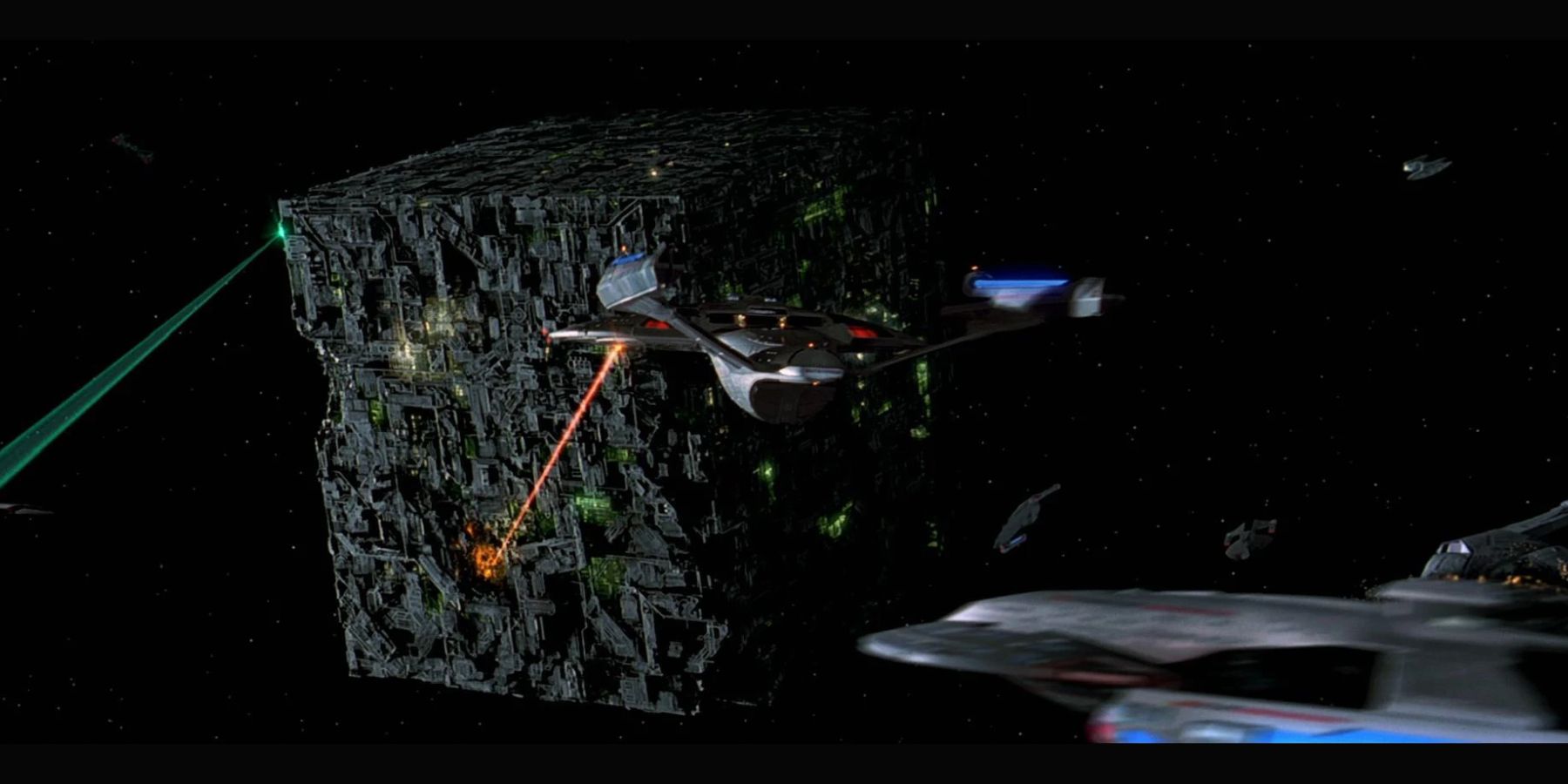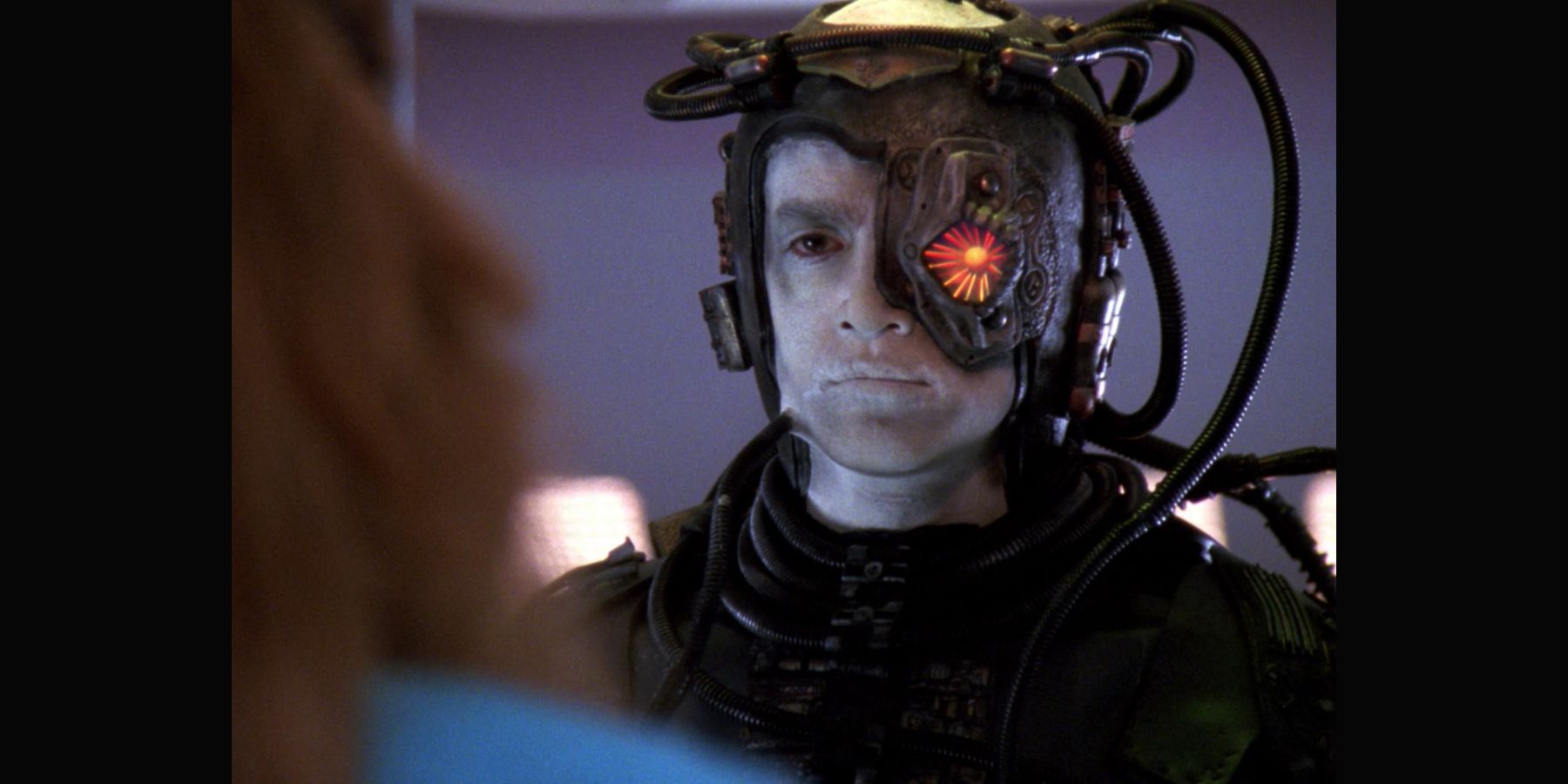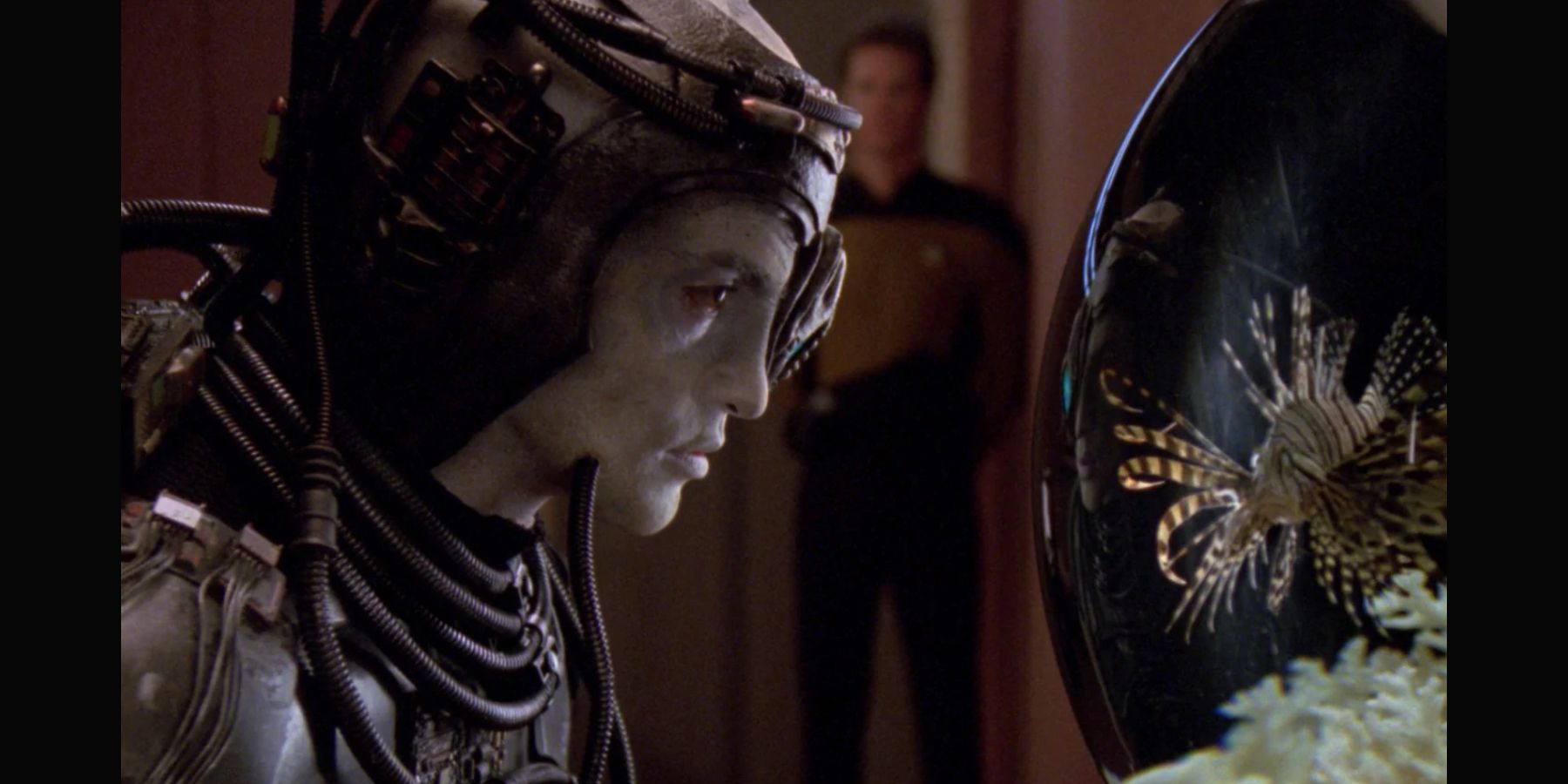Over the years, Star Trek has masterfully crafted a plethora of alien races and science fiction technology. Perhaps most iconically, it has introduced a range of deeply diverse and complex villains. Nothing is every black and white in the franchise. Every villain has a motivation, and often heroes have a dark side (looking specifically at Janeway and Sisko). Perhaps one of the most memorable baddies are the Borg. While these creatures seem to be more like a plague upon the galaxy than an actual race of people, it raises a very important question around the ethics of killing them.
To kill a few Borg is something no one seems to take much issue with. After all, they are cybernetically altered zombies of sorts, hell-bent on adding others into the strange robot cult. While this is true when the Borg are aggressive (which they are not always), it’s often mentioned that it’s best to avoid killing them. Under all the implants, they are basically victims of kidnappings, their bodies and minds being used by the collective. It’s been shown multiple times that it’s possible to remove these implants and bring the person beneath back from the collective, regaining the sense of individuality and rejoining society. A level of restraint is required when fighting the Borg.
The Next Generation is the best example of Borg genocide related ethics, especially when looking at the cast of main protagonists and their relationship with them. On board there is a man who has been traumatized by their violation of his mind and body, as Picard was assimilated previously for a short period of time. There's also a woman onboard whose entire race was destroyed by them, the devil parallel Guinan. Despite this, however, when asked whether the total annihilation of the Borg was justifiable, they both come together and say “no.”
In the episode “I, Borg,” the crew captures a lone drone. Instead of killing him for just being a member of the enemy, Dr. Crusher insists that he be brought back to the Enterprise and nursed back to health. For her, and her Hippocratic Oath, this person is alive and thus has the right to exist, no matter how inherently ‘evil’ they are. She’s not wrong, and it’s interesting to note that this is without the proviso of returning the Borg back to their long-lost humanity. She believes, and the crew of the Enterprise agrees, that regardless of being able to ‘cure’ the Borg, they must still try and treat and save them, even if they just end up going back to the collective and continue to do bad things. Both Picard and Guinan still struggle with the decision. They are angry, and still carry an inherent desire to wipe the Borg out for what they have done.
The episode continues with the Borg, who is found to be named Hugh, managing to regain some of his own individuality, showing that there is some redemption for the Borg and their victims. Hugh is a strange example because he is still Borg at this point, but there is an element of individuality and self awareness that is alive within him. A plan is hatched, and Geordi la Forge and Data devise a way to implant a virus within Hugh that would, when reintroduced back into the collection, completely wipe them out from the inside. It’s a masterful plan, and one that Picard would have taken in an instant, if it weren’t for the massive moral implication.
The Borg are doing bad things, that’s for certain, but at this point they aren't inherently evil. It would be like killing every single German in WWII just because the Nazis were committing atrocities. This changed somewhat when the Borg Queen was introduced, but at this point, the Borg were just an army of people following a rogue computer program. They were still alive, and not only this, but they were also capable of change, shown through Hugh. The crew decides that they cannot in good conscience wipe the entire race out. Morally, this is the correct decision, and they decide to put the now-healed Hugh back, where they found him to reintegrate with the collective.
This decision opens up not only the show's main protagonist to a lot of hurt, but also the entire galaxy. The Borg continue to defile worlds and assimilate races until they are stopped by war criminal Janeway in a way that seems incredibly counterintuitive to the message taught in TNG. Picard's decision was a difficult one, and he made it knowing the consequences, but he could not bring himself to wipe an entire race of beings from existence. He would have been responsible for the death of an entire civilization, and no matter how evil they may appear, this is never the correct way to do things. This said, if it were up to the Federation and their ofte black-and-white view of the universe, they would probably have ordered him to install the virus. But this is what makes Picard such a good captain. He never jeopardizes his morals, and always doing the right thing no matter the pain it causes.



